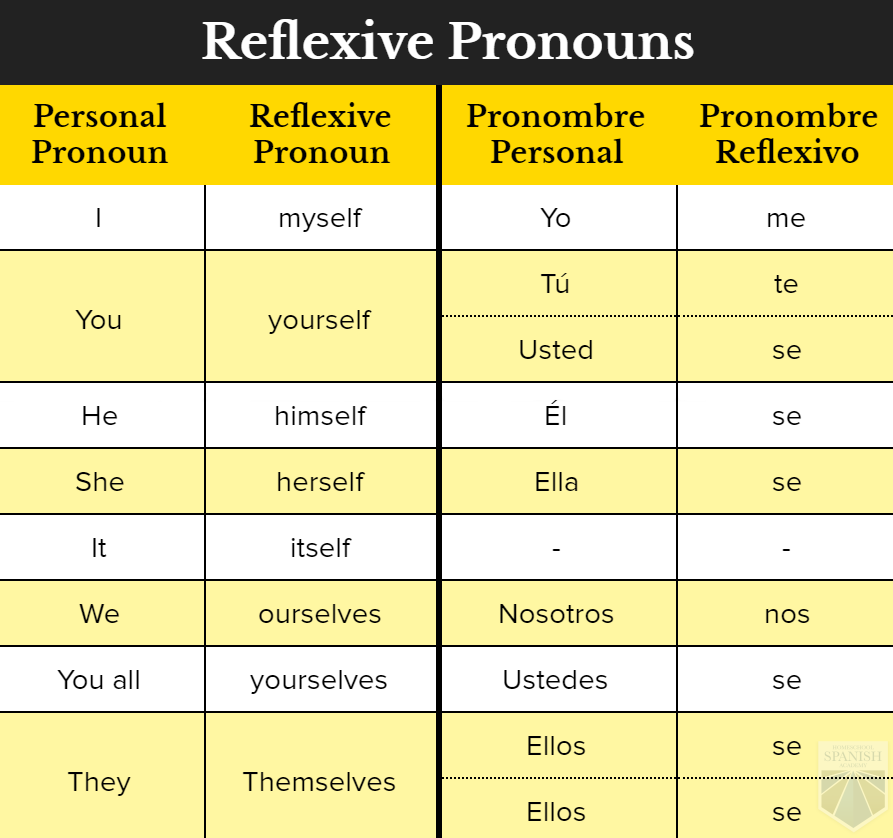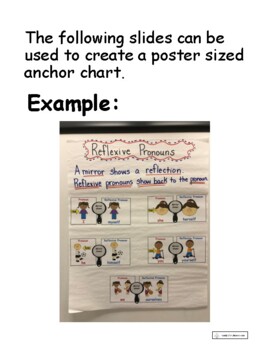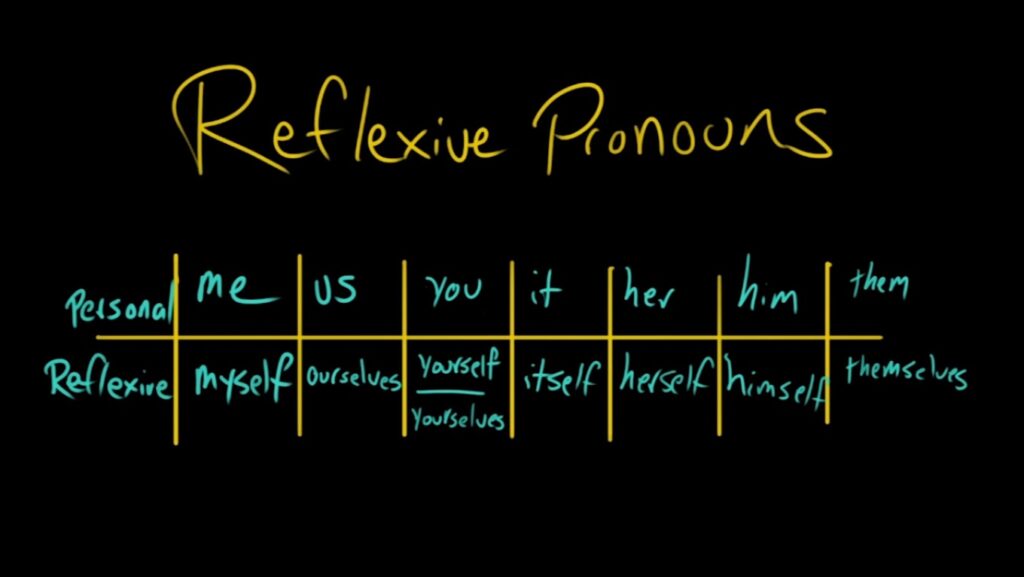
If you know that you’re dealing with a verb that needs a direct object AND you know that the subject and the direct object of the sentence are the same person, now you just need to pick out the right reflexive pronoun! I’ll introduce myself to my new colleagues. I’ll introduce the new coworker to the rest of the office.

This helps make the point that optionally reflexive verbs are often used for emphasis and/or to protest something. We would say ‘I’ll get dressed.’īUT if someone else were trying to insist that they would dress us, we would say, ‘No, I’ll dress MYSELF!’

Note: Under normal circumstances, we would NOT say ‘I’ll dress myself’ in English. I’ll dress myself (reflexive direct object) I’ll dress the baby (non-reflexive direct object) Both of these verbs require a direct object - we have to know whom is being dressed / introduced. Let’s look at 2 examples, ‘to dress’ and ‘to introduce’. we’ll usually opt for a different construction that avoids reflexive pronouns):īut there are many category #2 verbs that may be reflexive! There are very few verbs in English that must be reflexive (category #1) and they are uncommon (i.e. If yes, is the person taking the action THE SAME as the person receiving the action?.Does the VERB require a direct object in order to make sense?.To use a reflexive pronoun in English, you need to look for 2 things: Keep reading for examples of both types of verbs in English & in German!Īlso coming up: tables of English & German reflexive pronouns! How do reflexive pronouns work in English? Optional reflexive verbs - the direct / indirect object may be the same person as the subject OR may be a totally different person.TRUE reflexive verbs - a reflexive pronoun is an integral part of these verbs!.In both English & German, there are 2 groups of verbs that require (or at least allow) for a reflexive pronoun: In fact, you can’t really talk about reflexive pronouns at all without talking about reflexive verbs. Here, the reflexive pronoun ‘myself’ is referring back to the subject (‘I’) who is taking the action of crying (himself/herself) to sleep. Most of the time, you’ll use reflexive pronouns to indicate that the subject of the sentence is doing something to himself or herself, e.g. Reflexive pronouns are used to refer back to a person already mentioned. How do you know which reflexive pronoun to pick?.When do you use a reflexive pronoun vs.When do you use dative reflexive pronouns?.


As beginner, you will have sore muscles, but it will ease up at some point.ĭas wird nachlassen/aufhören. Where Torben is spending his holiday is unknown to me.Īls Anfänger wirst du Muskelkater bekommen. Wo Torben seinen Urlaub verbringt, das entzieht sich meiner Kenntnis. A meeting in the park? That can be arranged.ĭas kann man arrangieren. It’s all about this topic.Įin Treffen im Park? Das lässt sich einrichten. This trade fair is all about travel.Įs geht um dieses Thema. Verbs that change their meaning when they are reflexiveĪ handful of verbs change their meaning when they are used with a reflexive pronoun.Īuf dieser Messe dreht sich alles ums Reisen. (not reflexive ) the hairdresser brushes the client’s hair 3. The hairdresser is brushing the client’s hair. (reflexive ) the hairdresser brushes her own hair Die Friseurin kämmt die Kundin. Some verbs are only reflexive when the subject and object are one and the same. Verbs that are always reflexiveĬertain verbs are always reflexive they can’t be used without the reflexive pronoun.Ĭommon examples are: sich bedanken, sich beeilen, sich befinden, sich benehmen, sich betrinken, sich eignen, sich erholen, sich erkälten, sich schämen, sich verspäten, sich weigern … Example: Ich muss mich beeilen, damit ich mich nicht verspäte. There are three types of reflexive verbs in German: 1.


 0 kommentar(er)
0 kommentar(er)
